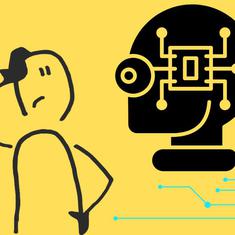1. Who is a terrorist?
A terrorist is a person who hurts others and harms them. Sometimes even killing them.
2. Why were they killing the children?
They wanted to harm people and they did not think whether the people they are killing are kids or teachers or parents.
3. Were there no guards or policemen to save the people?
Yes there were and the guards and policemen tried their very best to save the people and many were saved too.
4. Will terrorists come to my city/school too?
Well your mummy and daddy and all of us in school are going to protect you and keep you safe.
5. Will the terrorists be caught and punished?
Yes, all the police and army will now hunt them down and capture them soon.
These are some of the questions and suggested answers in a document that Podar Education Network in Mumbai has prepared to send to all its schools in the wake of the Paris attacks that left at least 129 dead. Although many schools are yet to re-open after the Diwali vacation, the document will be circulated among parents and teachers to prepare them for questions and addressing the doubts of students following the violence.
“The Paris tragedy will bring with it a lot of fears and anxiety in young children,” said the circular from Swati Popat Vats, director of Podar Jumbo Kids Preschools. “Some will be able to voice them and some will worry about it, unable to ask the questions that are worrying them. It is important that as parents and teachers we support them in this period by ensuring that our own anxiety does not pass on to our children.”
Vats has also sent this document to members of the Early Childhood Association, a pan-India group of which she is the president.
The circular has advised parents not to keep playing graphic images on television, to help children express themselves through play therapy and to avoid projecting their own fears openly.
In France itself, a youth magazine has since the attacks issued a leaflet with illustrations seeking to explain to children what happened.
Teaching about terror
Although most schools in Mumbai are still shut for the Diwali holidays, broaching the subject of terror has become familiar terrain for many, with the repeated nature of such attacks. Some choose to raise such issues through the curriculum, others respond when students raise questions.
Teachers and counsellors often receive a series of questions including the ones Vats anticipates: What is happening? Why is this happening? Why do people try to kill each other and can it happen to us?
But that’s not always all.
“'How can we make a change?' children often ask,” said Seher Hari, a teacher and counsellor with Mary Immaculate Girls’ High School in Borivali. “We tell them, you can’t change the world, but we try to emphasise the importance of tolerance.”
Schools said they are also careful in such situations to stress on values of respect and tolerance and to avoid demonising communities.
But it can be difficult trying to explain to students why the world is wired in the manner that it is. “A common question is: 'What can we do?'" said Nisha Jain, director of a boarding school in Maharashtra's Jalgaon district. Although children at her school are cut off from the relentless assault of television coverage, they do receive the news through the papers, and often raise discussions in the morning assembly slot. “They sometimes ask: 'Why doesn’t the United Nations find a solution? Will there always be suffering?'” continued Jain. Teachers then find themselves explaining that sometimes suffering is inevitable but that future generations will hopefully have peace.
Lasting trauma
Dr Avinash De Sousa, a consulting school psychiatrist who works with about 10 institutions in Mumbai, often addresses classrooms on such issues. After the Peshawar school massacre last year in which 132 children died after gunmen stormed in and opened fire at Army Public School, a few children De Sousa spoke with expressed fears that something similar could happen here. “A few were afraid to go to school,” he said. “We had to explain to them that that was a one-off incident.” In some cases students were taught relaxation methods, yoga, or given anti-anxiety medication. After such events, some might experience symptoms such as bad dreams or remain quiet and withdrawn for a few days.
De Sousa spoke of another case he dealt with where an eight-year-old, when on holiday, narrowly missed a terror attack that happened an hour after he left the spot. The child was racked with questions about death: What is death? Where do you go after you die? How does it feel?
Teachers might find it hard to address these seemingly simple, yet beguiling questions. “Teachers are also individuals, and they also need to be sensitised,” said Jeevan D’Cunha, a counsellor who has worked with adolescents for the past 20 years.
Then there are practical considerations as well. After the Mumbai attacks of 2011, city schools were quick to address students on issues of safety, personal precautions, and some installed closed-circuit televisions on their premises.
But teachers and other experts also point out that with the recurring nature of such attacks and the endless news cycle, at some level, students, especially older ones, might be getting desensitised to such events. “One of the things is that they have become jaded,” said Lina Ashar, founder of the Billabong group of schools. “Televisions are constantly on and showing disturbing visuals. They have become numbed to such situations.”










